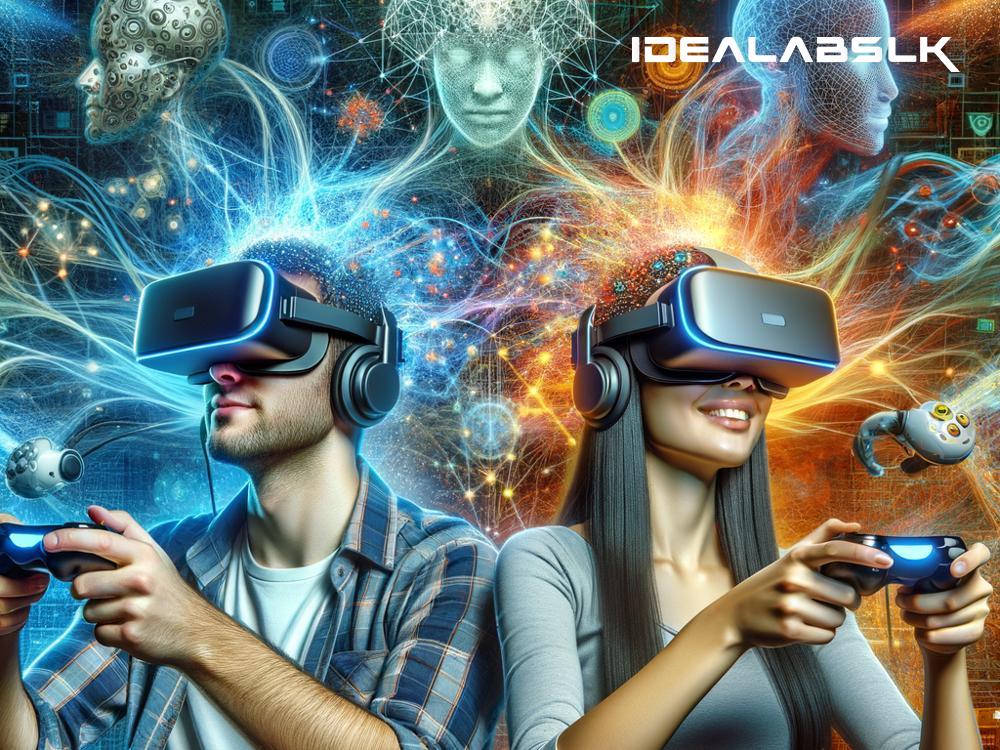AI and Machine Learning: How They Will Shape Player Interaction in Games by 2025
If you’re an avid gamer, you know that the world of video games is constantly evolving. New technologies pop up, changing the way we play and interact with games. Among these groundbreaking technologies, Artificial Intelligence (AI) and Machine Learning (ML) are leading the charge. By 2025, these advancements are expected to drastically enhance player interaction within games, making experiences more immersive, challenging, and personalized. But how will they achieve this? Let’s dive in.
Personalized Gaming Experiences
One of the most exciting prospects of AI and ML in gaming is their ability to create personalized experiences for players. Imagine playing a game that adapts to your actions, creating unique challenges and storylines based on your preferences. This isn’t a far-fetched dream. With AI, games can analyze your play style and make real-time adjustments to the game’s difficulty, ensuring that you’re always faced with just the right level of challenge.
Furthermore, AI can tailor game narratives to better suit your personal tastes. For example, if you enjoy solving puzzles more than combat, the game could dynamically offer more puzzle-based challenges, making your gaming experience more enjoyable.
Enhancing Player Communication
Communication in multiplayer games is about to get a major upgrade, thanks to AI. Currently, if you want to talk to other players from around the world, you often face language barriers. By 2025, AI-powered real-time translation will likely be seamless, breaking down these barriers and allowing players to communicate freely, no matter their native language.
Moreover, AI can monitor in-game communication to detect and act against toxicity, creating a healthier gaming environment. It’s not about censoring players, but about fostering a more inclusive and respectful community.
Smarter NPCs
Non-player characters (NPCs) play a critical role in many games. They can be quest givers, enemies, or companions. However, they often suffer from limited and predictable behavior. With the integration of AI and ML, NPCs are set to become much smarter and more reactive.
Imagine NPCs that can learn from your behavior and adapt. They could become more effective allies or formidable foes based on how you play. This would not only enhance the realism of game worlds but also introduce a new level of strategy and unpredictability.
Dynamic Game Worlds
Current game worlds are impressive, but they’re often static. Trees, buildings, and weather patterns typically stay the same. By 2025, AI could bring these worlds to life in ways we’ve never seen. Game environments could dynamically change based on player actions or in-game events, making every playthrough unique.
Machine Learning algorithms can also create realistic weather patterns and natural phenomena, such as storms that adapt to the in-game climate. This level of detail will make game worlds more believable and immersive.
Adaptive Soundtracks
Music plays a big part in making game experiences memorable. With AI, game soundtracks could adapt to the player’s situation in real-time. For instance, if you’re sneaking around enemies, the music could become more subtle and tense. If you’re in a battle, it could become fast-paced and dramatic. This would greatly enhance the emotional impact of games.
Beyond 2025
The possibilities we’ve talked about are just the tip of the iceberg. As AI and ML technologies evolve, their integration into gaming will deepen even further. We might see games that can be entirely generated by AI to suit a player’s preferences, from the storyline and characters to the game world itself. The line between player and creator could blur, with players influencing the game world in significant ways.
In Conclusion
AI and ML are set to revolutionize the world of video games by 2025. They promise to deliver personalized and immersive gaming experiences, smarter NPC interaction, dynamically evolving game worlds, enhanced communication, and adaptive soundtracks. This evolution will not only make games more enjoyable but also transform the way we interact with game worlds and each other. The future of gaming is bright and AI-powered, and I, for one, can't wait to see where it takes us.

